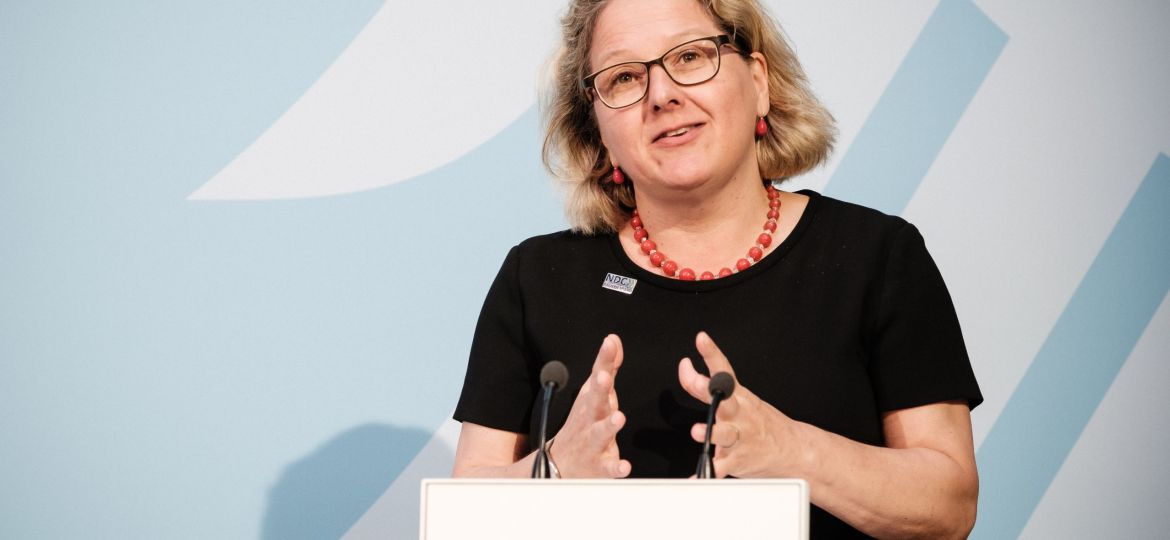
Germany’s Minister of Environment Svenja Schulze welcomed experts from over 90 countries to a “conference to generate momentum on NDCs” at an evening reception in Berlin ahead of the three-day event. Following the adoption of the Paris Agreement Rulebook in Katowice, focus has shifted from negotiation to implementation, with NDCs as a vital component. The Global NDC Conference 2019 will explore how to effectively implement current NDCs, as well as scale up ambition.
“In Paris, we agreed to update the NDCs in 2020. It is essential that we continually progress and improve – otherwise, we’re heading towards a global warming of 3 degrees Celsius,” said Schulze, who pledged to continue supporting the NDC Partnership through the International Climate Initiative (IKI) and to open new finance options for updated NDCs.
The Minister named examples of progress and innovation happening around the world, from water systems in Grenada and an express bus network in Colombia, to carbon light boxes in India and building efficiency in Ukraine, adding that “when it comes to climate action, it is okay to copy others.”
Conceding that delivering on NDC commitments is no easy task, she admitted that Germany will not meet its own national target for 2020, describing this as a “bitter pill to swallow.” She did, however, push for 2019 to be “a year of climate action” and expects Germany to adopt a Climate Change Act later this year.
Political progress in Germany has been accelerated by young activists taking to the streets demanding government action on climate change. Nick Heubeck from the school strike for climate movement known as ‘Fridays for Future’ in Germany explained how he got involved with the coal commission decision on phasing out coal:
“The commission had to balance a lot of interests; climate scientists, trade unions, environmental groups, energy suppliers but the group most affected by the decision was missing. Young people. On the last day of the commission, we walked on stage with three other climate activists, and said—look at us—what you decide in this room isn’t just about jobs, it’s about the livelihoods of my generation.”
Nick’s action helped kick off a nationwide movement inspired by 15-year-old climate activist Greta Thunberg. For the last 26 weeks, students across the country have been missing out on school every Friday to shine a spotlight on the government’s climate policies. There are now 500 Fridays for Future groups in Germany and 1.5 million young people have joined movement worldwide.
The school strikers have a simple message: stick to the Paris Agreement and listen to scientists. The campaign successfully influenced public perception and helped make climate change a key issue in this year’s EU elections. Nick urged conference delegates to listen and engage with the voices of young people “because we’re the ones most affected by the climate crisis, so it’s fair to say that we have an interest in being part of the solution.”


